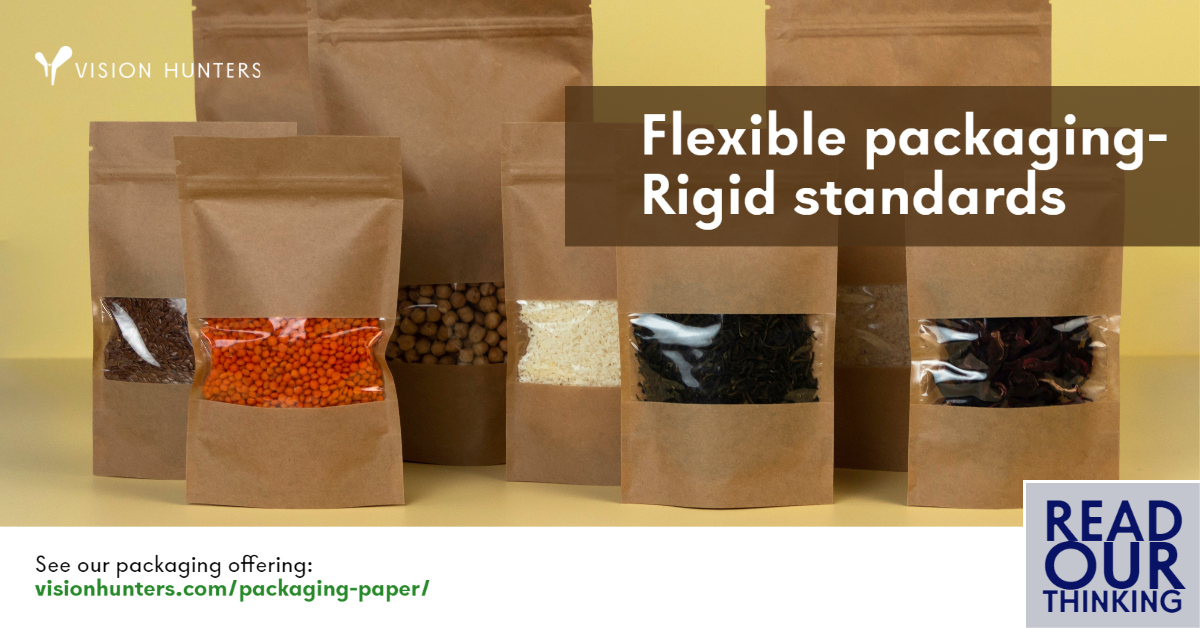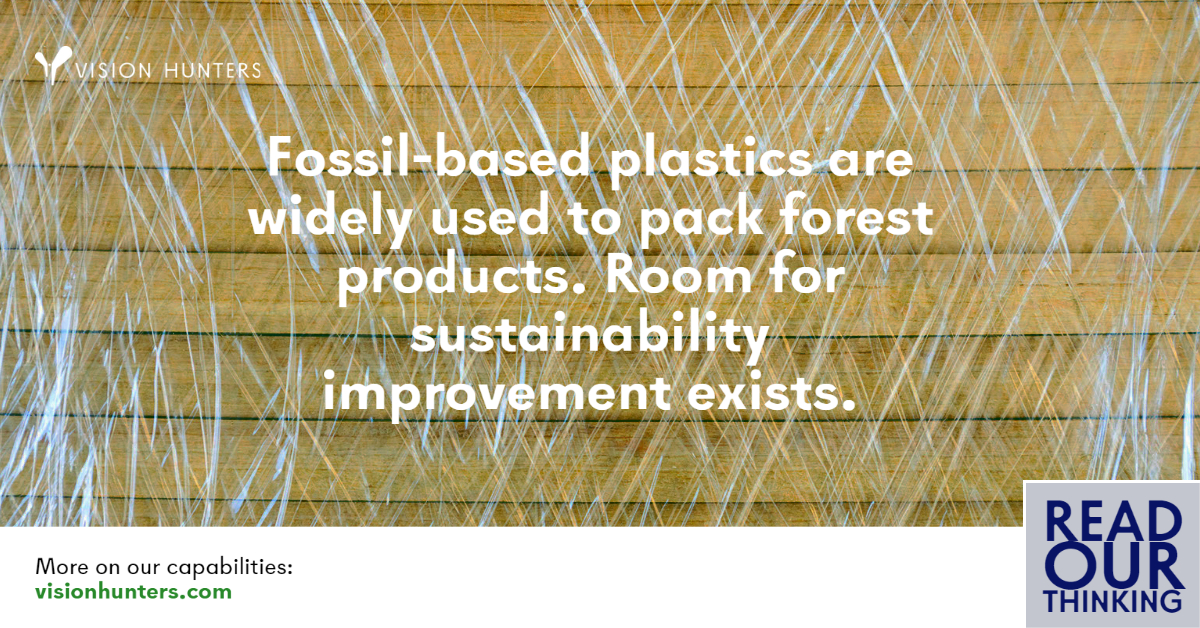We consumers face different packaging materials and solutions daily. Europeans consume on average nearly three times their body weight in packaging per annum. Packaging steers our consumption decisions, consciously or subconsciously, and makes our lives more convenient. Packaging is a central element of nearly all businesses: bundling services into sales packages, protecting consumer goods, transporting items to other markets. We asked three of our experts at Vision Hunters what they perceive as the most exciting developments in the field of packaging at the moment.
August 12, 2021
For forest industry companies, packaging of different wood, paper, board, tissue and pulp products have been flying outside the sustainability radar. Fossil-based materials, especially plastics, are widely used in the forest products supply chain, thus a lot of room for improvement exists sustainability-wise.
June 18, 2021
The development of a recycling infrastructure for packaging waste is a longer-term goal, which will be needed in order to more efficiently utilize raw materials and support circularity and by that a more sustainable future for our globe. What is surprising, is the currently lacking sorting of used food packaging in fast food restaurants, as typically all trash is placed into the same bin.
March 28, 2021




